Press Release: Regional actors channel creative approaches to shape policy advocacy on ending violence against women in the Western Balkans and Turkey
Date:
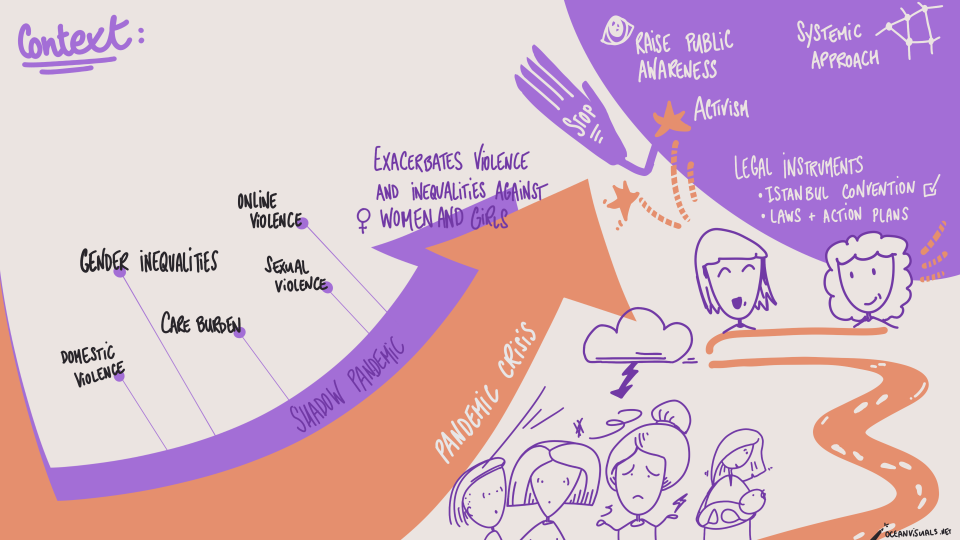
2 December 2021 – More than 150 participants, including representatives of civil society, regional institutions and government officials, joined forces in a unique event channeling creativity to shape policy advocacy to advance the agenda on ending violence against women in the Western Balkans and Turkey.
The Third Regional Forum “Inclusive Partnerships, Integrated Policies,” which took place on 1–2 December, was the third edition of the region’s first and only regular mechanism engaging strategic partners on ending violence against women.
Organized by UN Women, under the auspices of the Government of Bosnia and Herzegovina, this edition was co-convened by the Council of Europe and the European Union. It follows on the success of the First and Second Regional Forums “Integrated Policies, Inclusive Partnerships”.
At the opening of the Forum, His Excellency Miloš Lučić, Minister of Human Rights and Refugees in Bosnia and Herzegovina, declared: “The Regional Forum is an opportunity to exchange recommendations and ideas about positive practices on ending violence against women, as well as to discuss obstacles and problems in order to determine future priorities for fulfilling our obligations to the Istanbul Convention.”
Michela Matuella, Acting Director for the Western Balkans Directorate-General for Neighbourhood and Enlargement Negotiations at the European Commission, reaffirmed the commitment to eliminating violence against women in the Western Balkans and Turkey. “This regional event is a place for reflection and the only one in the region bringing together all relevant parties on the issue of ending violence against women and girls. The EU sees it as an opportunity to renew its commitment and explore effective cooperation with our wide regional network to allow women and girls to live a life free from violence in the Western Balkans and Turkey,” she said.
The Regional Director of UN Women’s Europe and Central Asia Regional Office, Alia El-Yassir, highlighted the unique and valuable space provided by the event. “This Forum is an opportunity to share evidence-based results and design an action-oriented road map to ensure that women and girls can live in safety and dignity. It is also an opportunity to learn from and connect with like-minded gender equality defenders. Because all of you here are champions and leaders in ending violence against women.”
Through interactive booths, experts from the region and beyond showcased practical, replicable strategies and approaches ranging from establishing femicide watches to improving sexual violence service provision, implementing perpetrator rehabilitation programmes, and shifting discriminatory social norms, the Regional Forum paved the way for several strategies and recommendations. These were mapped out on illustrated sounding boards as follows:
1. Advancing the establishment of femicide watches in the Western Balkans, Turkey and the subregion as a whole
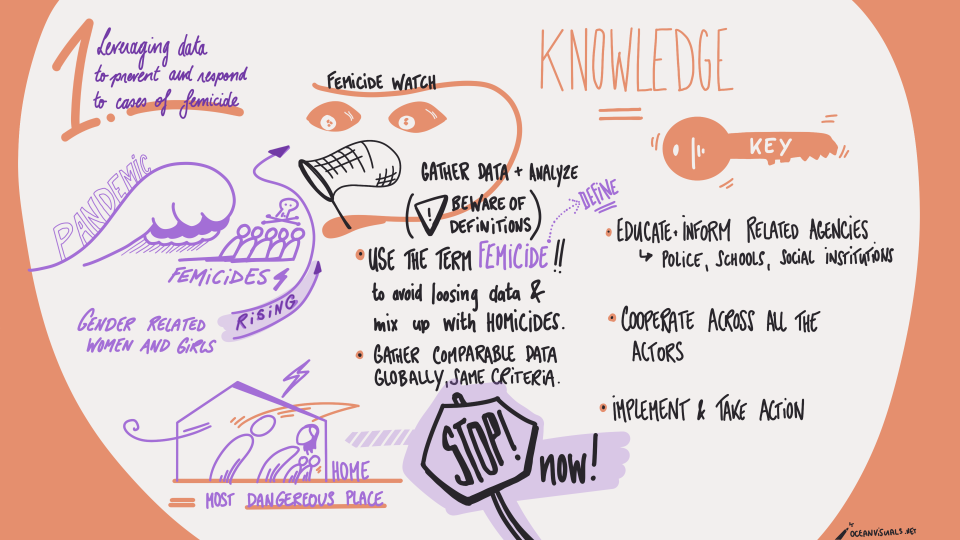
2. Improving access to general and specialist services for survivors of sexual violence and legislation pertaining to sexual violence in line with the Istanbul Convention
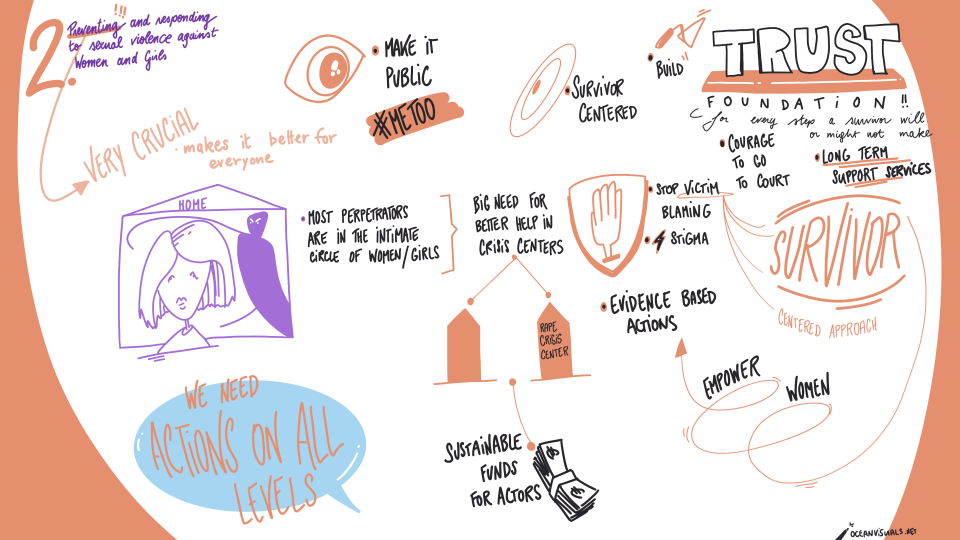
3. Establishing and further developing perpetrator programmes at the national and regional levels
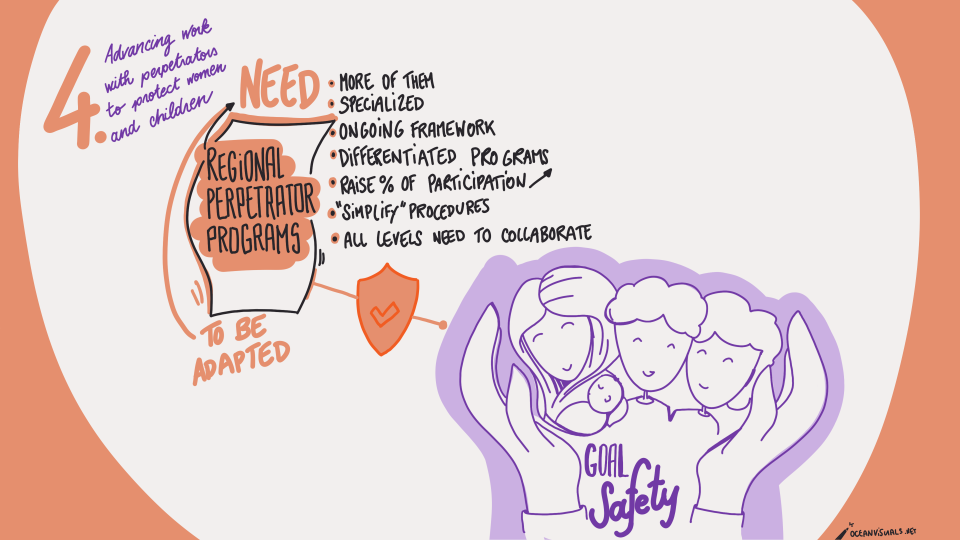
4. Implementing effective behavioural change initiatives and demanding gender-responsible media portrayal of women and girls.
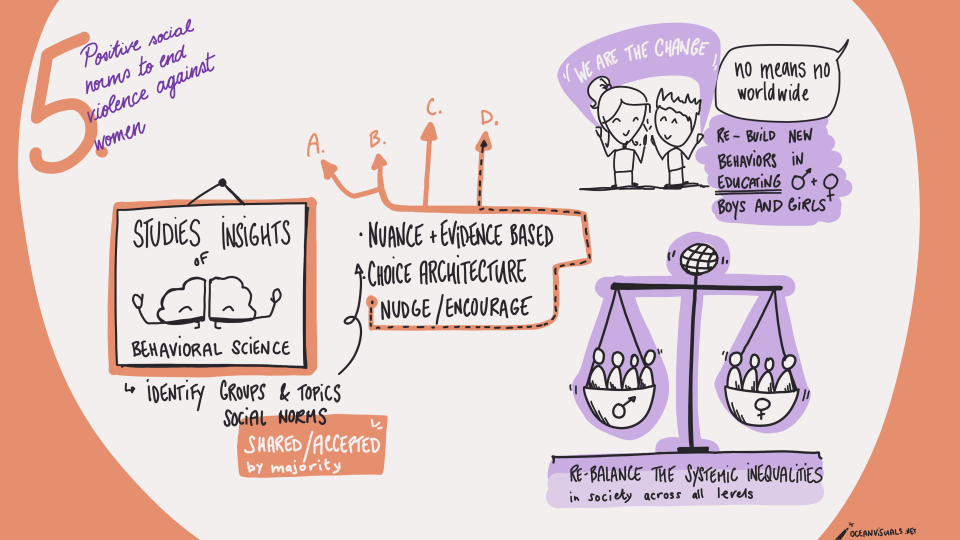
Representatives from national governments, local and regional institutions, and civil society agreed on a roadmap to advance the work with perpetrators in the region, leverage data through establishing femicide watches to prevent violence, promote social norms that favour equality, and make necessary amendments in laws, policies, and budgets to provide fully-funded, sustainable and high-quality services for survivors of violence. This road map aims to ensure that ending violence against women is transformed from an aspiration to a plausible reality.
Emphasizing the importance of the Istanbul Convention’s effective implementation to realize this agenda, Iris Luarasi, President of the Council of Europe Group of Experts on Action against Violence against Women and Domestic Violence (GREVIO) said, “Women’s rights are human rights all over the world. The Istanbul Convention is an essential component of the European human rights framework and must be put to use, offline and online.”
To close the event, and because addressing social norms lies at the cornerstone of gender inequality, well-known and respected football players from the Western Balkans and Turkey stood up against toxic masculinity and violence against women. They shared positive messages about masculinities via video messages to show how normalizing men’s violence harms men and boys and perpetuates violence against women.
His Excellency Željko Komšić, Chair of the Presidency from Bosnia and Herzegovina, underscored his country’s commitment to activism against gender-based violence. “We have made significant progress in preventing violence against women and girls and achieving gender equality. This type of exchange and regional cooperation is a good example of how to overcome challenges and how to learn from each other. I am convinced that this Regional Forum will contribute to even greater motivation, more knowledge and broader partnerships in the fight against violence and discrimination against women and girls in our region.”
The Third Regional Forum was organized as part of the regional programme on ending violence against women in the Western Balkans and Turkey “Implementing Norms, Changing Minds.”
For further information, please contact Victoria Puiu, Communications Specialist, [ Click to reveal ].